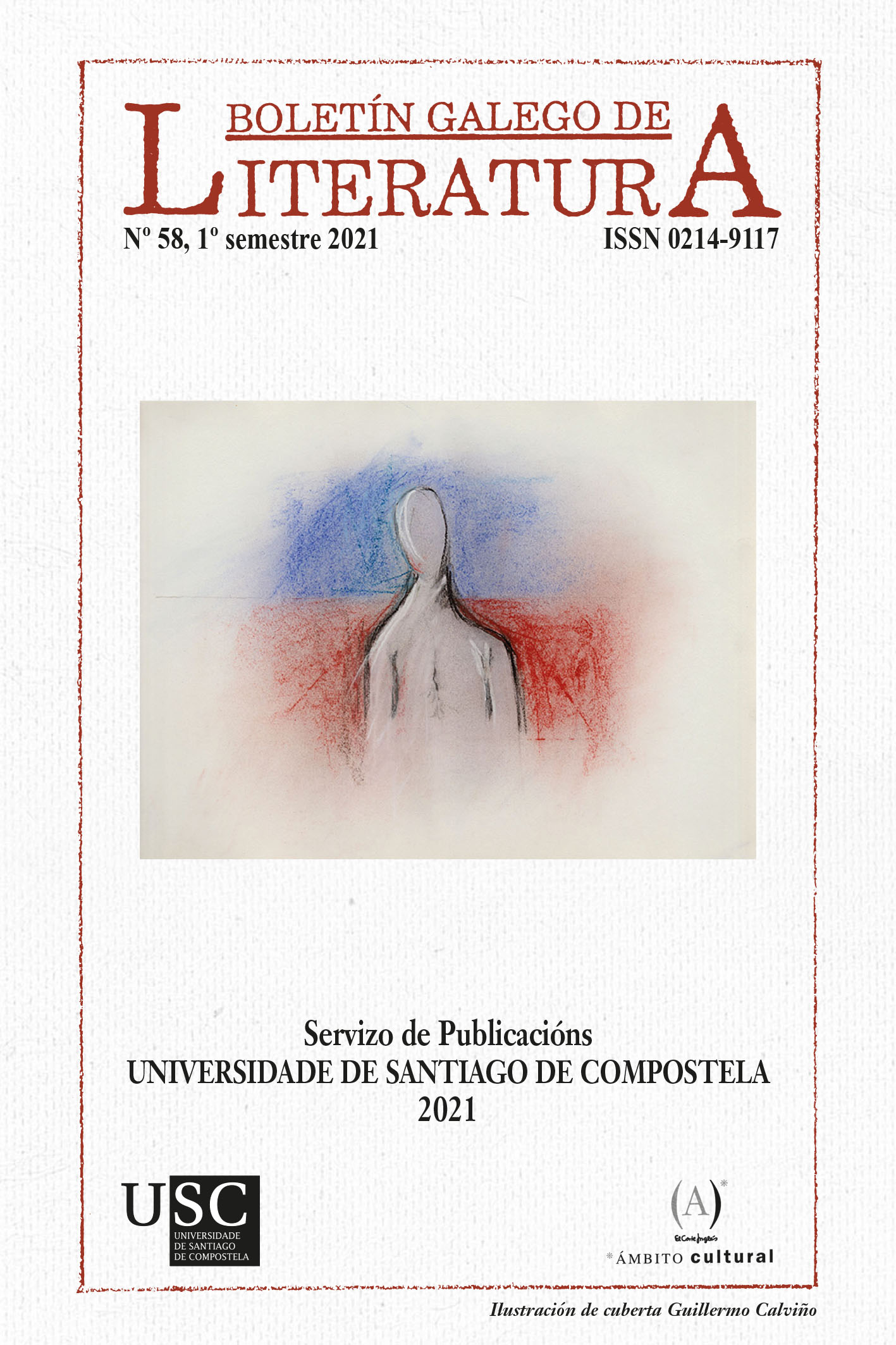Medieval refractions in Agustina Bessa Luís: Leonor Teles and Lady Macbeth
Main Article Content
Abstract
The study of the reception of the Middle Ages throughout the later centuries, in its creative aspect, reveals images of the medieval and questions about the present time. Starting from medieval hypotexts, Agustina Bessa-Luís reshapes Leonor Teles profile through the lens of Lady Macbeth. In the approach of the short story “D. Leonor Teles”, included in Fama e Segredo na História de Portugal (2006), we study the perceptions of the past and question the meaning and modalities of this medieval presence in the contemporary imagination – being certain that, as Gómez Redondo recalls (2006, p. 324), “all past research is practiced to illuminate the present; these ‘possible worlds’ do not rise by simple exercise of literary archaeology”. In a comparative perspective and under the prism of medievalism, we conclude that the author reconciles timelessness with medieval referentiality to portrait Leonor Teles in a “negative sublime” where she surpasses Lady Macbeth.
Keywords:
Article Details
References
Bessa-Luís, A. (1976). Crónica do Cruzado Osb. Guimarães & Cª Editores.
Bessa-Luís, A. (1973). Santo António. Guimarães & Cª.
Bessa-Luís, A. (1983). Adivinhas de Pedro e Inês. Guimarães & Cª
Bessa-Luís, A. (2006). Fama e segredo na história de Portugal. Editora Guerra & Paz. [Il. L. M. Castro]
Bessa-Luís, A. (2010). Fama e segredo na história de Portugal. Editora Guerra & Paz. [2.ª ed., Il. L. Pepper, Capa: I. Vasco]
Bloom, H. (1997). O Cânone Ocidental. Temas e Debates.
Cláudio, M. (2004). Triunfo de amor. Dom Quixote.
Emery, E. (2009). Medievalism and the Middle Ages. Em K. Fugelso (Ed.), Studies in Medievalism (XVII) Defining Medievalism(s) (pp. 77-85). D. S. Brewer.
Ferré, V. (2010). Introduction. Médiévalisme et théorie: pourquoi maintenant? Itinéraires. http://itineraires.revues.org/1782
Gally, M. e Ferré, V. (2014). Médiévistes et modernistes face au médiéval. Perspectives médiévales, 35. http://journals.openedition.org/peme/5761
Gally, M. (Ed.) (2000). La trace médiévale et les écrivains d’aujourd’hui. PUF.
Gentry, F. G. e Müller, U. (1991). The Reception of the Middle Ages in Germany: An Overview. Em L. J. Workman, J. Chance, F. G. Gentry e J. J. Chance (Ed.), Studies in Medievalism (III:iv) German Medievalism (pp. 399-422). D.S. Brewer.
Gómez Redondo, F. (2006). La narrativa de temática medieval: tipologia de modelos textuales. Em J. Morales (Ed.), Reflexiones sobre la novela histórica (pp. 319-359). Fundación Fernando Quiñones-Universidad de Cádiz.
Jauss, H. R. (1977). Littérature médiévale et expérience esthétique. Poétique, 31, 322326.
Lopes, F. (1979). Crónica de D. Pedro. Civilização.
Lopes, F. (1975). Crónica de D. Fernando. Imprensa Nacional-Casa da Moeda.
Lopes, Fernão (1977). Cronica del Rei Dom Joham I. Parte Primeira. Imprensa Nacional-Casa da Moeda.
Machado, A. M. (2017). O medievalismo nas Adivinhas de Pedro e Inês, de Agustina Bessa-Luís. Em T. Azevedo e M. F. Louro (Ed.), Ler a Idade Média hoje. Fontes, texto e tradução (pp. 21-36). Centro de Estudos Humanísticos da Universidade do Minho (CEHUM)-Edições Húmus, Lda.
Mathews, D. (2015). Medievalism: A Critical History. Boydell & Brewer Ltd.
Nichols, S. G. (2005). Writing the New Middle Ages. PMLA, 120 (2), 422-441. https://www.jstor.org/stable/25486169
Rebelo, L. de S. (1983). A concepção do poder em Fernão Lopes. Livros Horizonte.
Ribeiro, A. (1952). Príncipes de Portugal: suas grandezas e misérias. Livros do Brasil.
Shakespeare, W. (1987). A tragédia de Lady Macbeth. Livros do Brasil. [Tradução de João Palma-Ferreira]
Toswell, M. J. (2009). The Tropes of Medievalism. Em K. Fugelso, (Ed.), Studies in Medievalism (XVII) Defining Medievalism(s) (pp. 68-76). Boydell & Brewer, D. S. Brewer.
Workman, L. (1999). The Future of Medievalism. Medievalism: The Year’s Work for 1995, 10, 7-18. [Ed. J. Gallant]
Zumthor, P. (1972). Essai de poétique médiévale. Seuils.






